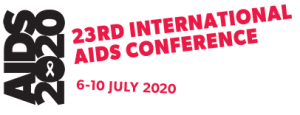It is our unceasing collective passion and strategic action that has led to extraordinary advances that have saved millions of lives. We pushed for political commitments that led to the launch of the US President’s Emergency Plan for AIDS Relief (PEPFAR) and the Global Fund to Fight AIDS, Tuberculosis and Malaria, the two largest funders of the global HIV response.
In the countries most affected by HIV, the union of scientists and community advocates led to increases in national budgetary commitments for health. We confronted AIDS denialism and helped unlock treatment access in low- and middle-income countries across the world – a feat once regarded as fanciful. In many countries, we forced political leaders to overturn repressive policies targeting people most vulnerable to HIV.
Today, the resilience that has taken us this far is being tested – this time, in new and different ways as the global health landscape is not what it once was. Now, we must come together and make common cause with other health issues while holding on to the key attributes that have made the HIV response so unique and so successful. We must ensure that we push forward integrated care and prevention approaches that will work for all people living with or at risk of HIV. Our ability to navigate this next phase of the HIV response, with the necessary adaptations in the current setting, is key to help set the emerging new generation of leaders on the path to future success.
As the 23rd International AIDS Conference (AIDS 2020) approaches, we must unite to face the challenges of a deteriorating human rights climate, repressive and punitive national laws in many countries across the globe, increasing xenophobia and social exclusion, and the widening gap between those with and without access to health services. We must use this moment to highlight our successes and address the gaps in the treatment, prevention and care paradigms to demonstrate the strength of our resilience.



